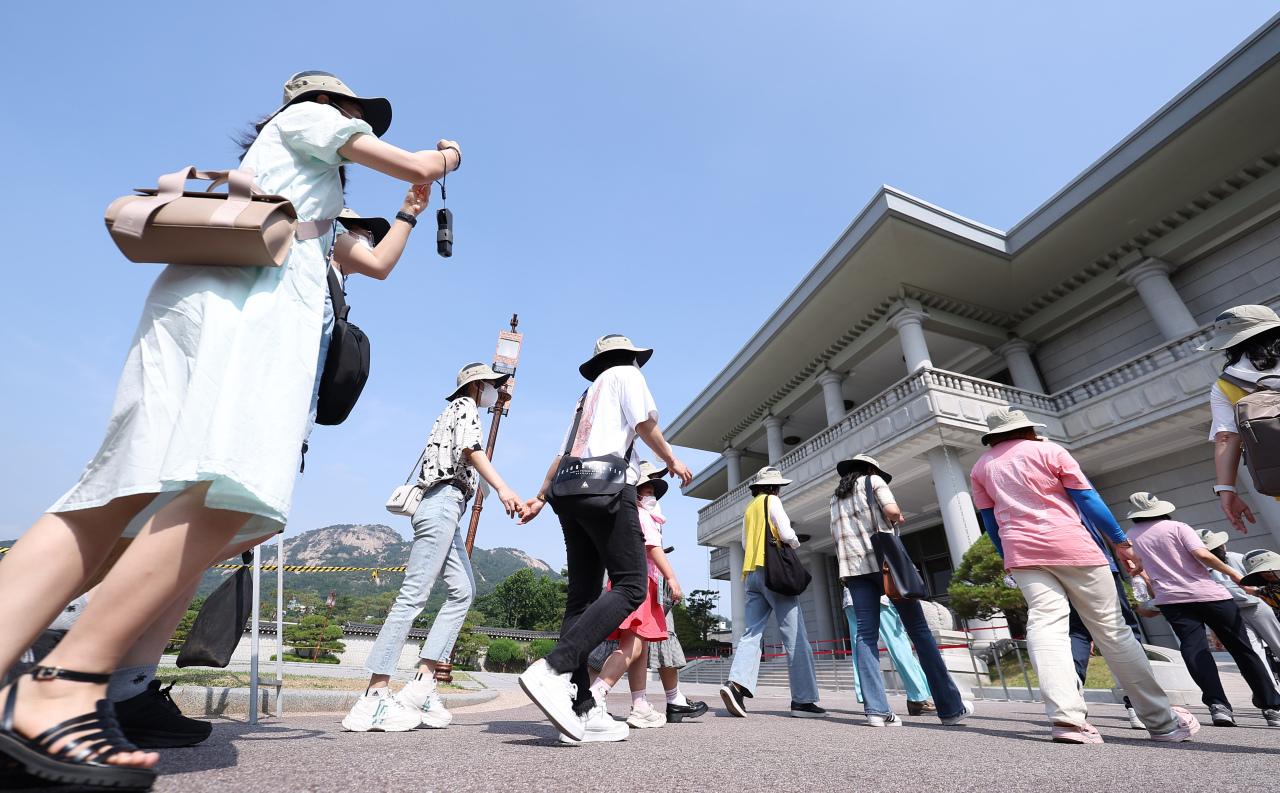Less than half of multicultural children move on to higher education: survey
By Im Eun-byelPublished : June 27, 2022 - 16:01

A survey conducted by the Ministry of Gender Equality and Family showed less than half of children from multicultural families in Korea enroll in higher education institutions, far below the national average.
The ministry conducts a survey of multicultural households in Korea every three years, through face-to-face interviews with multicultural families. In the survey, conducted over 2021, 15,578 multicultural families were interviewed.
Of those surveyed, 82.4 percent were families with “marriage immigrants,” referring to foreign nationals or naturalized Koreans who are married to Korea nationals, and 43.9 percent of the households had children between the ages of 9 and 24.
According to the ministry, less than half of children from multicultural families moved on to higher education, such as universities. While 67.1 percent of children aged 13 or above from multicultural families answered they would like to attend four-year term universities, only 40.5 percent actually enrolled in higher education institutions, showing a 31 percentage point gap with the figure for the entire country, which stands at 71.5 percent.
The gap was significant considering that nearly 95 percent of children attend elementary, middle and high schools, showing an only two to three percentage point gap with the overall population.
Meanwhile, the average score for pride as a multicultural family stood at 3.38, marking a slight decrease from 3.48 in 2018. Self-esteem was rated at 3.61, also showing a slight fall from the previous 3.87.
Some 10 percent of children from multicultural families said that they do not have conservations with their parents for a whole day.
“Parents who are not fluent in Korean and lack local community or cultural experiences are not able to fully communicate with their children who grew up in Korea,” an official from the ministry analyzed.
The ministry, however, said fewer families have experienced discrimination or difficulties living in Korea than compared to the previous survey results.
Some 37.9 percent answered they do not face difficulties living in Korea, marking an eight percentage point increase from the previous figure studied in 2018.
But 16.3 percent answered that they have been discriminated against for their foreign backgrounds. The figure, however, is significantly lower than the 2018 figure -- 30.9 percent -- and 40.7 percent seen in 2015.
The ministry said it will work on policies to support multicultural families in Korea based on the survey results.
By Im Eun-byel (silverstar@heraldcorp.com)



















![[Today’s K-pop] Treasure to publish magazine for debut anniversary](http://res.heraldm.com/phpwas/restmb_idxmake.php?idx=642&simg=/content/image/2024/07/26/20240726050551_0.jpg&u=)